Resources
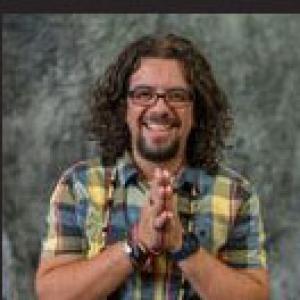
Sometimes classrooms feel like our family living room, with our families around, exposing all kinds of political positions and emotional responses, all of us trying to respond to some events that are going on in the world. We look at each other for help, or to hate, we hope for some understanding and make some sense of wild things. Our schools are in some ways, the extension of our common life and there we try to figure out our lives together. Porous as they are, schools and classrooms breathe and vibrate the world outside of them - subjectively and objectively. We get anxious about what is going to happen to our schools and if we are going to be able to cope and survive. Minorities feel the intensity of worldly events in particular ways. Thus, schools and teachers must be aware of social political events going on around us and respond to them in careful ways. When institutions offer a collective response, with open spaces and written documents, it is easier to deal with the expansive classroom responses. Let me provide two examples of what I have experienced in the US: September 11, 2001, and the election of Donald Trump in 2016. The first event was my first day of class at Union Theological Seminary in New York and the second was my first semester as a teacher at Union Theological Seminary. September 11 was a dramatic anxious day in NYC. We were lost without information and feeling so afraid. Classes were canceled and a gathering in chapel at noon was called. As we gathered, our school “pastor” started with words of assurance, sustenance, and support. We had people leading us in prayer, silence, and sharing words of wisdom for such a time as this. At the corner of the chapel, professor in Late Antique and Byzantine Christian History & Professor of Byzantine Christian Studies, and Orthodox Priest John A. McGuckin stood at a corner of chapel holding a long prayer bead and a cross that was swinging back and forth while his body moved back and forth in prayer for the world. I remember holding hands with now Prof. Jackie Hidalgo and finding solace in her company next to me. At some point, an airplane flew over our heads and we didn’t know what to expect. The whole chapel went into a deep silence as we waited for the airplane sound to disappear. We were together for about two hours and we left with more information about what was going on, how to protect ourselves and to learn how to rely on each other as the day went by. In 2016, one day after the election of Donald Trump, the whole school, surely a very liberal school, went into an emotional and political shock. Classes were not canceled but a call to gather in chapel was issued to occur after the chapel service. The worship service for that day had to be reimagined as well with lots of meditation. After worship, we were to talk about the post-effects of the election that we thought would never happen. Dr. Su Pak and I were called to lead that time and we divided the time into two main blocks: mourning and hope. We started with an introductory word from our president Serene Jones and started singing the South African song: “the journey, the journey, the journey is long… walk with me for the journey is long.” We then proceeded by opening up the floor for anyone who wanted to express their emotions, their feelings about the results of the elections in their own bodies/souls, their communities and the possible consequences of this election. This time we had Muslim and Buddhist professors and students around, as well as other (non) religious affiliations. After a long time sharing an immense variety of emotions in the warmth of a community, we opened up the space for the possibility of hope and sustained commitment to justice and peace. We left singing “the journey, the journey, the journey is long… walk with me for the journey is long.” While fragile in its approach to the immensity of these times, these collective events served as a sense of communal support that was fundamental for gaining a larger perspective, to voice our own feelings, to know we needed to support each other, especially minority communities at higher risk, and to help us keep going. After these collective events, the work that was to continue in our classrooms was somewhat easier. No classes should go without pausing to attend to events such as these and to give voice to those either agree with us or are opposed to us. For someone to voice their support to Trump at Union was not an easy thing and we teachers have to hold them in their right to speak and honor their place in our midst. In times such as these, we are tempted to demonize the ones we are disgusted with by their practices and cultivate hidden feelings that desire their sheer disappearance. It is easy to feel trapped in these opposed dualisms. However, to live with the contradictions of this seems incredibly absurd. Yet, this reality is what drives us to continue to engage each other, keep safety as a priority, and protect the most vulnerable and fight for what we believe. It is a daunting, even haunting task for the teacher in his/her classroom. If educational institutions can provide open spaces to deal with our fears and doubts and find support, we will be better teachers. At the American Academy of Religion last month, there was a space provided by some groups and led by the Liberation Theology Group that did just that: an open space was provided for conversation, to find out what to do, to learn with each other about the best ways to address political issues ourselves, with our peers and when back to our classrooms. This blog is such a public space as well. Throughout these blogs posts, we will gain a better sense of how to access and engage our realities, of how to listen to one another and make classrooms open spaces that will better prepare our students, and ourselves, to deal with our burning world.
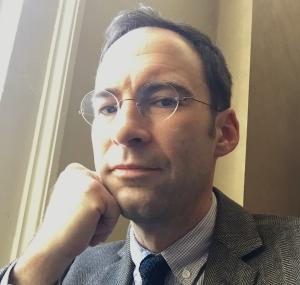
Caleb Elfenbein Assistant Professor Grinnell College Don’t we all have moments when we want to, or perhaps feel like we should, set aside a class session plan in lieu of discussing a pressing event or development? Despite the vast array of subjects that we teach within the broader field of..
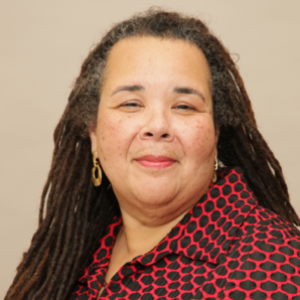
Nancy Lynne Westfield Associate Professor of Religious Education Drew Theological School Phil Salter, a current student and muse of this Blog, in describing himself as a seminarian, said, “I am learning on the fly.” Intrigued by this notion, I have been thinkalating … Habakkuk has come to mind…. Recorded in..
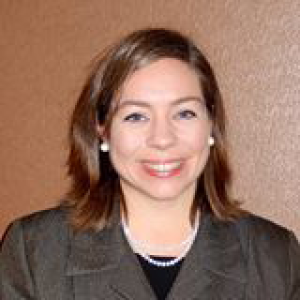
Mindy McGarrah Sharp, PhD Assistant Professor of Pastoral Theology and Ethics Phillips Theological Seminary As I followed the #FergusonSyllabus twitter conversation just before this semester began, I considered ways to address race in a new way in my pastoral care course. Unmasking structures of suffering and developing anti-racist pastoral care practices are already important to both my research and my pedagogy. What is different about race matters this semester? With only one required pastoral theology class in the curriculum, I take seriously my moral obligation to prepare students to be present and responsive to the personal and structural dynamics of...
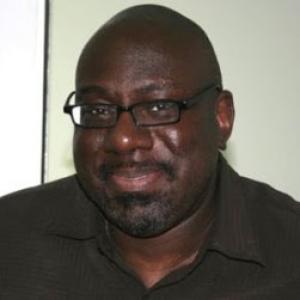
One of my earliest experiences was my first day at school in Bradford, West Yorkshire, in The United Kingdom. Sitting in what was the equivalent of the reception or the beginner's class, I suddenly felt an intense pain in my right arm. I turned around to find that I was being bitten by this White boy sitting next to me. When I asked him why he had bitten me, he said "I wanted to see what colour blood you have. My nan (colloqualism for Grandmother) says that you coloured people have different blood to us." That incident, when I was 4 years old, has stayed with me. The actions of that young White boy were based on the assumption that I was somehow different to (and less than) him. As I am writing this piece the news is awash with the disturbances in Ferguson, Missouri, where an unarmed Black man was shot dead, killed by the police. While the two events are separated by over 40 years, they are linked in the casual disregard many White societies still have towards Black people. The teachable moment that arises from any casual observation of the latter event, which in my case is informed by the former, is that of subjectivity. What does it mean to be a subject? What does it mean to be a human being endowed with the capacity to create self meaning and to generate worth and 'somebodiness' in the world? The converse of being a subject is to be an object. Objects have no intrinsic meaning in and of themselves. Meaning for an object is given to it, not from within, like a subject, but from without, by external forces. To treat a subject as if it were an object, i.e. with no intrinsic worth other than what is given it, is often named as "objectification." For a human being to be treated as if they are an object means that they are considered by others as having no intrinsic meaning or value in and of themselves. Therefore, they can be treated as others so decide. So I could be bitten with little thought given as to whether it was right, justified, or how I might feel. More crucially, for the purposes of this blog, it also means that an unarmed Black man can be shot and the burden of responsibility be placed on the moral character of the objectified Black youth and not the White, armed police officer. One of my all time heroes is the South African freedom fighter, Steve Biko. Biko was an advocate of "Black Consciousness," a sociopolitical movement committed to enabling Black Africans in South Africa to reclaim their innate subjectivity. For Biko, it was imperative that Black people rediscover what it meant to generate their own internalised self meaning and definition of self that transcended the objectified impositions of White racists. Biko was murdered in 1977. In the 37 years since then much has changed. There is a Black man in the White House. Something that would have been considered impossible in 1977. And yet the dehumanising forces that give rise to objectification sadly remain. Black people continue to be treated as objects and have their innate self worth and claims to dignity and even life trampled upon and transgressed. The challenge for theological educators is one of preparing our students to both deconstruct and transform the objectifying tendencies of White hegemonic systems, in order that the innate subjectivity of all people, including Black people, can be acknowledged. The life, struggles, and ultimately, the death of Steve Biko reminds us that disinterested knowledge for knowledge's sake is a luxury we can ill afford when faced with the death dealing forces of objectification. Theological education must be transformative and committed to the human flourishing of all peoples. The people of Ferguson, Missouri and beyond deserve nothing less. This model of theological education is one that is embedded in both the pedagogical processes and the subject-content of the curriculum. In terms of both pedagogical and subject-content, it is the concern to bring the wider world and the lived realities of human subjectivity into the classroom and the teaching moment. I have constantly asked of students "How does the human subject impact upon the intellectual theories and frameworks we are addressing?" So in classes on say "theological reflection" or "Christian formation", the question becomes "How does gender or other issues of power impact what we notionally believe it means to be a Christian?" The point I am trying to get them to see is that incidents such as me being bitten back in the late 1960's, or the shooting of an unarmed Black man in Ferguson in 2014, or the death of Steve Biko in 1977, do not just fall from the sky. They don’t arrive fully formed. They are constructed. They have their antecedents in the myriad ways in which power and the negative hermeneutics of difference lead to destructive forms of objectification, which in turn, give rise to a continuum of violence. Sadly, the highly charged political agenda I am outlining for a transformative mode of theological education has found very few takers. The continued push for a non-committed, seemingly neutral, process of teaching and learning still holds sway and far too much education operates as if the incidents impacting Ferguson, Missouri do not exist. We have a long way to go.
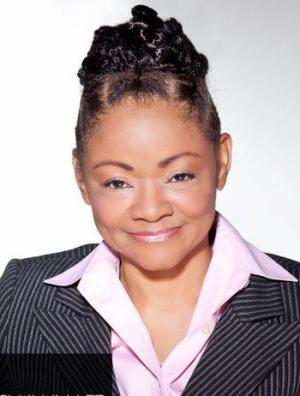
Rev. Dr. Mitzi J. Smith, Ph.D. Associate Professor of New Testament & Early Christian Studies Ashland Theological Seminary/Detroit Center One day in 2009 after President Obama took office, I walked into my Greek exegesis class at Ashland Theological Seminary in Detroi t and one of two white male students asked, “Dr. Smith, don’t you think we live in a post-racial society given we have elected a black President and here I am sitting in your class a black female with a Harvard Ph.D.?” I didn’t doubt my student’s sincerity. I’d like to think that he felt safe enough in that space...
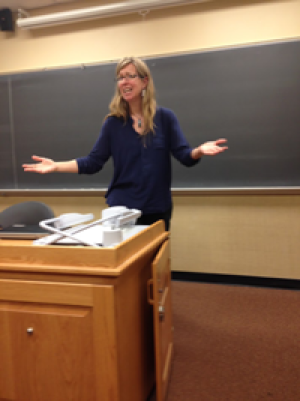
Kate Blanchard (Ph.D., Duke University) Associate Professor of Religious Studies Alma College It’s late summer in North America. The days are breezy, the nights are cool. Students in athletics t-shirts and shower shoes shuffle around campus. Here in Alma the intermittent sounds of marching bands, coaches’ whistles, and bagpipes hover...
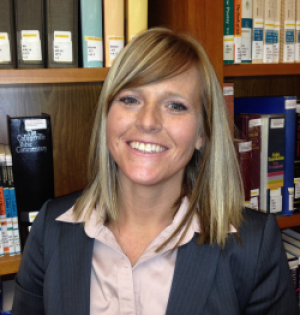
Ella Johnson, Ph.D. Assistant Professor of Systematic Theology St. Bernard’s School of Theology and Ministry I didn’t plan to bring it up. In fact, I had made a conscious decision to not talk about it. But, in the middle of class, I said something. I had to. I still wonder if I made the right decision. August 27 was the first day of my Theology of Church and Ministry class. I was prepared with a list of learning objectives I wanted to accomplish: introductions to the class and to each other; review of the course outline; overview of the scope...